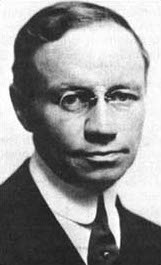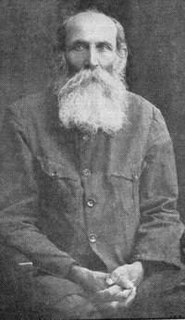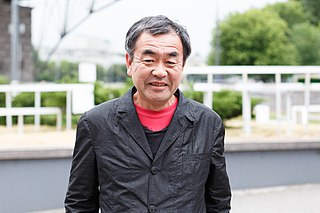A Quote by Francis Bacon
Upon a given body to generate and superinduce a new nature or new natures is the work and aim of human power. To discover the Form of a given nature, or its true difference, or its causal nature, or fount of its emanation... this is the work and aim of human knowledge.
Related Quotes
Nature is man's inorganic body -- that is to say, nature insofar as it is not the human body. Man lives from nature -- i.e., nature is his body -- and he must maintain a continuing dialogue with it is he is not to die. To say that man's physical and mental life is linked to nature simply means that nature is linked to itself, for man is a part of nature.
Democracy must stand or fall on a platform of possible human perfectibility. If human nature cannot be improved by institutions, democracy is at best a more than usually safe form of political organization . . . . But if it is to work better as well as merely longer, it must have some leavening effect on human nature; and the sincere democrat is obliged to assume the power of the leaven. [Progressive]
After decades of faithful study, ecologists have begun to fathom hidden likenesses among many interwoven systems. ...a canon of nature's laws, strategies, and principles...
Nature runs on sunlight.
Nature uses only the energy it needs.
Nature fits form to function.
Nature recycles everything.
Nature rewards cooperation.
Nature banks on diversity.
Nature demands local expertise.
Nature curbs excesses from within.
Nature taps the power of limits.
Human life is an extension of the principles of nature, and human civilization is a venture extrapolated out of human natures: man and his natural potential are the root of the entire human domain. The great task of all philosophizing is to become competent to interpret and steer the potential developmental forces in human natures and in the human condition, both of which are prodigiously fatalistic.
Nature has put itself the problem how to catch in flight light streaming to the earth and to store the most elusive of all powers in rigid form. To achieve this aim, it has covered the crust of earth with organisms which in their life processes absorb the light of the sun and use this power to produce a continuously accumulating chemical difference. ... The plants take in one form of power, light; and produce another power, chemical difference.
And when you, O human, will return to Nature, that day your eyes will open, you will stare straight into the eyes of Nature and in its mirror you will see your image. You will knowthat when you hid from Nature, you hid from yourselfWe who have been turned away from Nature - if we desire life, we must establish a new relationship with Nature.
Man's mind is his basic tool of survival. Life is given to him, survival is not. His body is given to him, its sustenance is not. His mind is given to him, its content is not. To remain alive, he must act, and before he can act he must know the nature and purpose of his action. He cannot obtain his food without a knowledge of food and of the way to obtain it. He cannot dig a ditch-or build a cyclotron-without a knowledge of his aim and of the means to achieve it. To remain alive, he must think
Idealists are people who believe in the potential of human nature for transformation. . . . The most essential attribute of human nature is its mutability and freedom from instinct . . . it is always within our power to change our nature. So it is actually the idealists who are on the mark and the realists who are off base.
You could say that my aim is ‘to recover the place’. The place is a result of nature and time; this is the most important aspect. I think my architecture is some kind of frame of nature. With it, we can experience nature more deeply and more intimately. Transparency is a characteristic of Japanese architecture; I try to use light and natural materials to get a new kind of transparency.
To copy Nature? A boy with a camera can do that. To get the spirit of Nature? A woodman or a shepherd can follow the trail of the whistling wind to hoarded sunshine in distant wolds. But to interpret Nature and inform it with a human personality that rises above it, invokes the divine in it, is the work of genius.










































